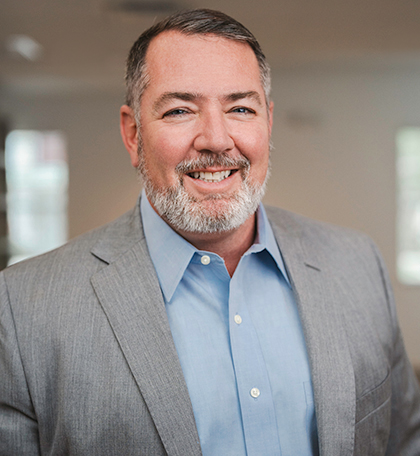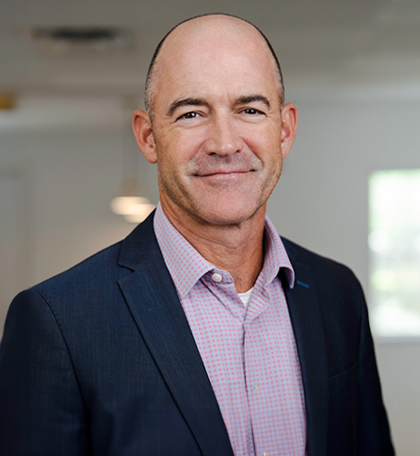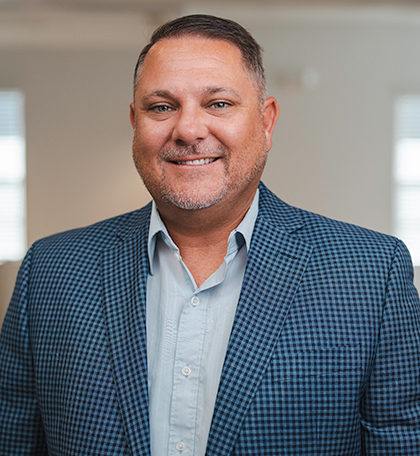TRANSCRIPT:
Welcome back to Financial Foundations, brought to you by Base Wealth Management, where we are the foundation to your financial plan. I’m your host, Dustin Taylor.
I’m your co-host, Alex Wolfe, Certified Financial Planner. And today we’re going to talk about how much you can expect to spend in retirement, and that comes down to things like your lifestyle that you’re going to have in retirement, Medicare costs and health costs, and other things like that. Not to mention, with lifespans now reaching up into the 80s, it’s no wonder that retirement savings and Social Security are being strained. People need their money to last longer than ever now.
So Alex, whenever you’re working with clients on a financial plan, how does the discussion about longevity risk typically go?
It can vary, especially when working with individuals and couples. Everyone’s different, and we don’t know their family medical history or if they have any underlying or even undiagnosed medical issues. But the stats are there, meaning that when examining mortality tables, people are living longer than they had 50 years ago, so their money needs to last longer. And so we try to plan for that. And it sounds morbid, but you’re saying this is worst case scenario, meaning you’re going to live possibly into your 80s, 90s. You want to make sure that your money’s going to be there if you need it, and it’s better to overplan than for someone to say, well, I don’t plan to live that long. Well, that may be true that you don’t plan to, but there is a possibility that you may, and that’s why the plan should account for that scenario.
So how do people typically react when you tell them something like one in four people are living into their 90s now?
They can be kind of like blown away, like when you think about it, but then when you tell them like, well, who do you know that is in their 90s? I mean, a lot of people these days either had a family member, a friend, someone they know is probably in their 90s and they may be
fortunate to have had a pension or they’ve been living on a decent social security check every month. And those are things that people these days, either they’re concerned about social security, which is a whole nother topic, or they don’t have things like a pension like workers used to. So they’re reliant on other ways of saving and getting income when planning for their retirement and possibly living into their 90s.
So you let them know the statistics and now you start to construct their financial plan. How do you go about determining how much income they will need?
That again is totally customizable, dependent on their lifestyle and how well they’ve saved and accumulated assets. Some people are very what you would call frugal and they accumulated a decent net worth, but they don’t spend a lot. And then you have a totally different conversation like, hey, if you’re not going to spend down your wealth, this is what you may have at the end of your plan to leave to your beneficiaries, which could be children, grandkids, charities, whomever. But then there’s also people that may be living a very comfortable lifestyle and they may be spending a lot of their current income while working. And then you’re having a conversation, well, if you want to maintain that lifestyle during retirement, which most people do, very few people want to like make sacrifices during retirement, no, they worked for potentially 40 or 50 years and they want to be able to relax and do the things that they want to do. And that’s where we get into that kind of goal-based planning and try to solve for, this is how much you’ve saved, these are your income sources, like Social Security, maybe they have a pension, and then what they can expect to draw from their portfolio comfortably to make sure that their assets last potentially 20, 30, 40 years. However many years they have left of their lives and depending on when they decide to retire, but that all kind of comes into that big picture goal-based planning.
Okay, and how do you use this software to help determine their withdrawals in retirement?
You can look at it through a couple different lenses per se. One, through a tax strategy. So you want to optimize their withdrawals from different buckets. They’ve got their 401ks or IRAs, which are going to be taxed when they pull it out at income tax rates. Maybe they’ve got some after-tax brokerage accounts or savings accounts. And so you want to try to construct that income from all those different sources in a tax-efficient way. And then you have a whole nother thing about required minimum distributions. When they reach, right now, age 73, but in the future it’s going to go up to 75, and then what they will have to take out. And for some,
they’re already going to meet their minimum required distribution. But for others, they may be fortunate to not have to spend all that money that they will in the future when they hit those ages of RMD age. So that’s one way, is from a tax strategy. Two, is optimizing their withdrawal rate, is figuring out what their guaranteed sources of income are, and then what that gap is that they’ll need to withdraw from their investments. And making sure that each account is invested appropriately, and maybe even in a tax-efficient way if it’s in a taxable account. And then where they should be trying to generate income from within each of those accounts in the overall portfolio. And we use software to help us do that. And then we can even project when they can expect income through dividends, or when bonds mature or CDs. Those are all things incorporated in our planning software.
So when you’re using the software to build these plans, are you seeing an uptick in plans failing or clients kind of second-guessing their plans?
Yeah, we definitely are. And I think that given this rapid inflationary period that we are kind of still in, people are spending…
more than ever, because the cost of living is expensive, especially where we are here on the Gulf side of Florida, cost of living has just jumped tremendously. So people are having to tap into savings, and we want to help them feel comfortable with their decision on when they can possibly retire. And we want to be more of like a guide, say, okay, well, this is what our planning software is telling us if you want to retire at 62 versus 65, and how much more income you could possibly take from the portfolio just on that extra three years of growth. And then on top of it, like one concern that a lot of retirees have is the last thing they want to do is retire right as a recession begins. And we want to kind of take that stress or fear off the table and say, well, we want to position the portfolio where it doesn’t matter, because we don’t know when that could happen, and don’t want to try to time it.
Do you find that that improves their confidence, or is there something else that you also do?
I think it definitely does improve their confidence when you can show them different scenarios in the planning software, and how we generate income from the portfolio to help them live with less stress. I think at the end of the day, a lot of people are fearful that when they’re no longer making a paycheck or a salary, they don’t know how to take money out of their portfolio. It’s just a foreign concept, because they’re used to maybe just putting money in every month, and now they’re in that decumulation, withdrawal stage during retirement, and it can feel a little bit different. So I think kind of showing them how we construct the portfolio in a safe way to help make sure that they have those early years covered, and then also with the long-term growth bucket, that that’s there for future years that you can rely on, should you live a long time.
Okay, so right now, inflation is kind of a big item, because it’s so hot right now, but there are other issues that are typical of retirement plans. What are some?
of those.
Yeah, one of the big issues, especially for people that retire before 65 is medical care and insurance and coming out of pocket to pay for maybe private health care before they can qualify for Medicare. So the cost of health care is a pretty common concern that we talk to clients a lot about. And the second is like, what are you going to do in retirement? People, they don’t know. They’ve been working for decades and they just like, I don’t know what I’m going to do, maybe they don’t even have a hobby. So you actually have to kind of talk to them about, well, you want to be able to find things to do. Do you enjoy traveling? Do you have family you want to go see? Do you want to buy a camper or an RV? And like, you’re almost like talking to them about like ways to spend their money now that they’re looking at slowing down or retiring, or are they going to be working part-time? Some people in their plan, we’ve planned for them to work part-time as an extra income stream and some are doing that just to fill time because they don’t want to just do nothing and they don’t know what they’re going to do and other people, maybe they need to help subsidize their income by working part-time and that’s something that we can incorporate in the plan too.
So it’s pretty staggering, especially now what retirees can expect to spend. So what are their reactions whenever you tell them?
Yeah, this is kind of a fascinating thing when you like show them what they’re actually likely to spend during retirement over the course of 30 years, depending on what that actually comes out to,
especially for like, say like a couple who has $2 million and they’re spending $150,000 in today’s money per year, over the rest of their lives, they will literally spend somewhere between $5 and $7 million when you factor in inflation. on top of what they’re spending now for 30 years. Like, why don’t you have $7 million? But your portfolio is growing as it’s invested as well, and you’ve got those other income sources, like social security, maybe you’ve got an annuity or something like that, that’s also growing with inflation or you get cost of living adjustments. So when you show them, like, you’re gonna spend $5 million over 30 years, like, that’s crazy, I don’t have that kind of money. But when you show them, like, how their portfolio will support that and what possibly could be left of their investments at the end of the plan, it gives them kind of a level of comfort.
I feel like we can’t talk about spending retirement without at least touching on the 4% rule. Have you seen that be a cause of failing plan or how is that incorporated now?
It definitely can. And when you think about the 4% rule, where it fails is when you think about sequence of returns. So if you have several, if you retire now and you have three years of a down market and you’re withdrawing 4%, that is a huge detriment to your portfolio, which will take the rest of your lifetime really to recover. Then if you try to do the same 4% withdrawal rule during a good market, you’ll have two completely different outcomes. So what you wanna do is use what we’ve talked about in previous podcasts and videos is using the guardrails where you actually are adjusting your income potentially, depending on what the market’s returning. And we use a income software that will show you what has to happen in the markets before you need to adjust your income. So that 4% rule generally is okay, but there are definitely scenarios where it will not work out as good as it sounds or seems.
How do you start to position a client’s investments as they approach retirement?
That’s a really big piece of the puzzle. is making sure that as they approach that retirement year or age, that you’re starting to get some of the portfolio more conservative. Because the last thing you want to do is make, is have their entire portfolio in growth stocks. And during that year that they retire, the market’s down 20%. That’s a lot less than ideal. So going into it, you want to start moving some of their early income needs, maybe a couple years worth of income into laddered bonds or CDs or high yield savings in some fashion or some combination of the two. So that way when they need that money, they know it’s going to be there and they won’t have to worry about what’s happening in the stock market during those early years where that’s really critical time in their life. And they know that that money is going to be there. And trying to time the market is not advised.
So I think that typically the big fear is running out of money in retirement. But I would say there are probably people like me who save at any time that they can, possibly to my own detriment, because I’m not enjoying things that I could be enjoying. So do you encounter other people who are overprepared whenever you’re creating their plan and you actually can help them to live a little now in the moment by adjusting that for them?
Yeah. We don’t often do a lot of financial planning for people in their thirties. We do more like coaching or budgeting and things like that. But when you hit a certain age is when you start to kind of put the pen to paper and start drafting that initial financial plan. And you can show them as what you’re describing is like, this is how much you’ve saved. Like you’ve done an incredible job, but you really can kind of take your foot off the pedal because you’re going to be over prepared or over saved. And then you’ll be having to worry about like spending and taxes in the future, depending on what tax buckets they’ve saved money into in their, in their different accounts, uh, and then what their projected, like, end of plan asset, assets are. As we think about estate planning, the tax, the estate tax laws are sunsetting in, in a little over a year, in 2026, and so they could be having a whole different conversation. It’s like, you’ve saved so much, which congratulations, you’ve like accomplished that, but you’re going to have a potential estate tax issue at the end of your, in your spouse’s or partner’s life. And that’s another planning conversation, or you’re having them like, Hey, you need to start enjoying some of this money. Like you’ve saved so well, and we want you to enjoying some of this money. Like you’ve saved so well, and we want you to enjoy your life and, and you’ve done a great job saving, but now’s the time to kind of slow down and enjoy it, like take those family vacations, uh, which is an, another thing that we talk to clients about is like, do you want to leave the money to your family at the end of your life? Or do you want to start enjoying some of that money now with your family and creating memories like big family vacations or weddings? There’s all kinds of things.
You mentioned something there, sun setting. I know that the TCJA Act is sun setting relatively soon as well. Do you expect if that, if Congress doesn’t act, that that increase in taxes will cause a big change in the, in financial plans?
I think so. I, not extreme, not like to an extreme, but I think that it will have an impact because now people who may be used to getting a tax refund may actually start owing taxes, so instead of seeing people do those last minute IRA contributions, they’re like, well, I don’t, I don’t have that $5,000 to put into my IRA. I actually owe the IRA. IRS money, so that, that could definitely be a factor and that will have like a trickle down effect because they won’t be saving as much.
So yeah. Can you start preparing for that now, like with stress tests and stuff? Like let’s say that that, that would happen, then you can prepare in your plans now to account for that?
Yeah, in your financial plan, we can account for a variety of different things. One is if you’re working with someone who’s very cautious about inflation, we can show them what our base inflation is compared to what, what an inflated inflation number may be and how that affects their plan, which is, is staggering when you see like, we used to use a 2% inflation rate and when we bump that up to a two and a half over the course of their plan, it, it really was ugly when you looked at how big of a gap that was when just a half a percentage more than inflation over 40 years is compared to just a 2%. It was, it was pretty eyeopening. So those are the things that we can account for in the plan, such as increased tax rates. And in the planning software, it’s already accounted for those sunsetting.
So as you can tell, retirees can expect to spend quite a lot in retirement, inflation and a high cost of living attribute to that. I think it goes to highlight the importance of having a proper financial plan in place is, especially during these times of inflation and cost of living and people are maybe tapping into savings more, it, you really cannot prepare enough. And if you want to make sure that you can retire when you want to, you want to have these conversations sooner rather than later.
Right. And so if you want more tips on how you can better prepare for retirement, then be sure to check out our website at basewealthmanagement.com. There are a ton of resources there, including podcast episodes, more videos, articles, and, and more. Be sure to tune in on your favorite podcast listening app, or you can find our Financial Foundation podcast, which you’re listening to right now.
I’m Dustin Taylor. I’m Alex Wolff. And happy listening.




